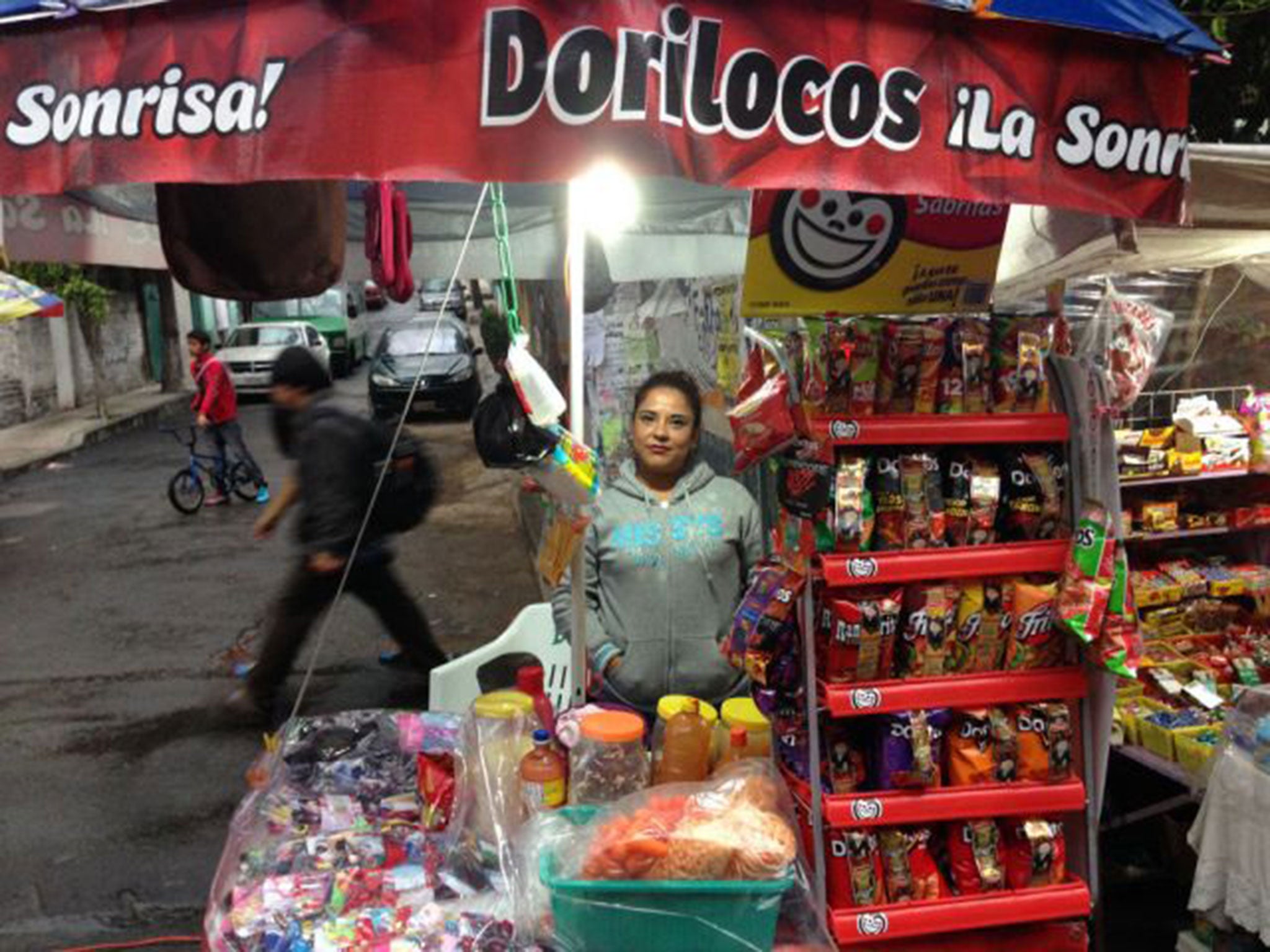Are you ready for Crazy Doritos, the red-hot snack food craze sweeping Mexico’s streets?
Trend which requires crisps, a fork and a strong stomach is testament to inventiveness of pushcart vendors, says Nick Miroff in Mexico City

Your support helps us to tell the story
From reproductive rights to climate change to Big Tech, The Independent is on the ground when the story is developing. Whether it's investigating the financials of Elon Musk's pro-Trump PAC or producing our latest documentary, 'The A Word', which shines a light on the American women fighting for reproductive rights, we know how important it is to parse out the facts from the messaging.
At such a critical moment in US history, we need reporters on the ground. Your donation allows us to keep sending journalists to speak to both sides of the story.
The Independent is trusted by Americans across the entire political spectrum. And unlike many other quality news outlets, we choose not to lock Americans out of our reporting and analysis with paywalls. We believe quality journalism should be available to everyone, paid for by those who can afford it.
Your support makes all the difference.The streets of metropolitan Mexico City, population 20 million, are many things, not all of them pleasant.
They are crowded, yes. But they are also one of the world’s great incubators of snack food experimentation, where street vendors slather mayo and cheese on grilled corncobs, and carve mangoes into flowering fruit bouquets.
Perhaps, then, it was only a matter of time before someone gazed upon a bag of Nacho Cheese Doritos, a product boasting a fair few ingredients, and thought: these need more.
That appears to be how Dorilocos, or Crazy Doritos, came along.
They are not for the faint of tongue nor weak of stomach. But Dorilocos are a testament to the culinary inventiveness and intense competition on Mexico’s streets, where it’s simply not enough to sell snack food as its manufacturers intended.
“They’re good, but whoa, that’s a lot of different things all at once,” said Gabriela Doroteo, sampling Dorilocos for the first time at the behest of her 12-year-old son, Yael.
She held a plastic fork in one hand. Her other cradled a bag of Nacho Cheese Doritos sliced open, lengthwise, then heaped with grated carrots, jicama, cucumber, pickled pork rinds, peanuts, jellied sweets, lime juice, two kinds of chilli powder, and swirls of several kinds of fruity syrup and hot sauce. It looked like a Jackson Pollock painting dumped in a bag.
“They’re just a fad,” scoffed Carlos Gonzalez, a pushcart tamale vendor, watching teens line up at the Dorilocos stalls across the street. “They’re for kids,” he said.
No one is sure of Dorilocos’s precise origins. Some say they are a northern invention concocted somewhere along the border. Others trace them to the rough barrios that ring Mexico City. There are Dorilocos fan pages on Facebook and YouTube videos about how to make them.
Evelia Alcala first encountered Dorilocos about a year ago at the outdoor market in her gritty Santo Domingo neighbourhood in southern Mexico City. “I tried them and I said to myself, ‘I can do better’,” she said.
She had been selling socks and backpacks on the street for six years until then. Then she began experimenting with spice combinations and sauces until she found the right blend. Now she serves about 300 Dorilocos a week from her stall, just down the street from Mexico’s National Autonomous University.
Though the Mexican government has launched a health campaign against junk food, Ms Alcala insists that while Dorilocos may be crazy, they are not junk. “Look at all the vegetables,” she said, pointing to plant material buried under all the gooey sauces. Ms Alcala sells them for 18 pesos, about 85p. The bag of Doritos alone costs her nearly half that.
“My son hurt his knee and needed surgery last year,” she said. “I was able to pay for it with my Dorilocos.”
Ms Alcala named her stall Dorilocos La Sonrisa – roughly, Crazy Doritos with a Smile, decorating it with colourful banners that depict several brands loaded with toppings.
At the ready are other Dorito flavours: Pizza, Flaming Hot, Devil-Hot and a milder one called Incognito. But the rojos – Nacho Cheese – are the Dorilocos standard.
Nacho Cheese Doritos were introduced by the late Frito-Lay executive Arch West after his encounter in 1964 with a Mexican vendor’s cheese-sprinkled corn chips at Disneyland, according to Gustavo Arellano, author of Taco USA: How Mexican Food Conquered America.
Having swept across the United States, the Nacho Cheese Dorito went home, in a sense, to Mexico, returning in slightly spicier form but with the same red sack.
“Things have changed in terms of Mexican acceptance of American bastardisation of Mexican food,” Mr Arellano said, “especially in the borderlands.”
Mexico’s Doritos are made by Sabritas, which, like Frito-Lay, is a PepsiCo brand. And lately, even Sabritas has got behind the Dorilocos craze, providing vendors like Ms Alcala with business signs that say “Dorilokos – mix up your snack!”
“They are a familiar Mexican food with continuity to the past,” said Jeffrey Pilcher, a historian and author of Planet Taco: A Global History of Mexican Food.
“It’s a classic example of innovation that, in its own bizarre way, stays true to the cuisine.”
© Washington Post
Join our commenting forum
Join thought-provoking conversations, follow other Independent readers and see their replies
Comments